Home / Handy Tips /

Memory and storage – these computer terms are often used interchangeably. The truth is, they are two very different things.
In this article, we’ll explain in plain English the difference between memory and storage. We’ll look at how the two work together, and how they affect your computer’s overall performance.
What is Computer Memory?
Computer memory is called RAM, which stands for random-access memory. RAM is used to store data that is currently being used. Data stored in RAM can be accessed very quickly, as RAM is closely connected to a computer’s central processing unit (CPU).

Computer memory is like a desk or workspace.
Here’s a good analogy. Think of RAM as your computer’s desk, the area where your computer can access, open, and work on files. The desk is only so big, and there is a limit to how much stuff you can open on the desk at one time. When your computer is done with a file or program, it is removed from the desk.
Most computers come with anywhere between 4GB and 32GB of RAM pre-installed.
How Does RAM Affect My Computer’s Performance?
Generally speaking, the more RAM you have, the faster your computer will function. But, whether or not you need the extra power depends on how you use your computer.
If you just browse the web, watch movies, check your email, and stay up-to-date with your social media accounts, 4 to 8GB of RAM will suffice. But, if you use multiple high-powered programs at once, work with extremely large files, or play video games, it might be worth investing in 16GB or more of RAM.
Some laptop and desktop computer allow RAM upgrades. Purchasing additional RAM is relatively inexpensive, and will have a huge impact on the speed and performance of an older device. Some modern computers – including all new Apple laptops – are not upgradeable.
What is Computer Storage?
Computer storage refers to the place where data is stored when it isn’t being used. Your computer’s storage may consist of a hard disk drive or a solid-state drive (SSD), the latter being much faster.
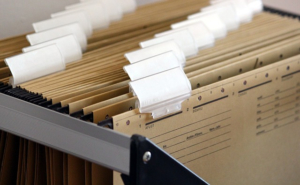
Computer storage is like a filing cabinet.
Let’s go back to the desk analogy. So, if RAM is the desk, computer storage is the filing cabinet. If you need to work on a particular file, you browse the filing cabinet, locate the file, and open it out on your desk. When you’re finished, you take it off the desk, and return it to the filing cabinet. The file will stay there, unchanged, until your throw it away or something goes wrong with your storage system.
Although your filing cabinet is much bigger than your desk, it too can only hold so many files. As it fills up, accessing a particular file becomes more time-consuming. And, if you don’t organise your filing cabinet properly, locating what you want can become challenging.
How Does Storage Affect My Computer’s Performance?
Two key factors relating to computer storage will impact your device’s performance:
- Your computer’s storage capacity. Hard disk drives and SSDs can store hundreds of gigabytes of data – some upwards of 1 terabyte of data. But, when the storage starts to fill up, your computer will slow down – a lot. One way to combat a full hard drive is to back up your data on an external drive and a cloud storage service, and then delete it off your hard drive.
- The type of computer storage. As we mentioned above, SSDs are faster than hard disk drives, meaning it will take less time for you to save and open files and programs. The good news is, most modern computers come with SSDs. And, most older computers’ hard drives can be removed and upgraded to an SSD.
Always Backup Your Data
No matter how much RAM you have, or the type and capacity of your computer’s storage, they will eventually slow down and stop working. If you fail to backup your data and your storage breaks down, it’s gone for good.
Protect you files and photos with a backup solution that makes use of two backup strategies. For example, you might back up to an external hard drive and a cloud storage service. NAS storage is also a popular option to back up your device.
That way, when your computer dies, it won’t take the important stuff with it.
Leave Frustrating Computer Issues with Us
Slow computer? Worried a full, messy, or infected hard drive is causing performance issues? Get in contact with the experienced team at Computer Cures. We can perform data backup service, computer repairs, and computer maintenance to get your computer working as it should. Call now on 1300 553 166 or fill out the form on this page.

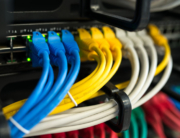
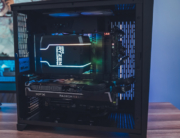
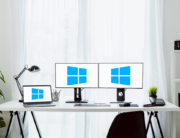

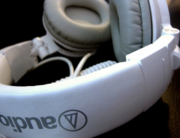
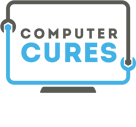
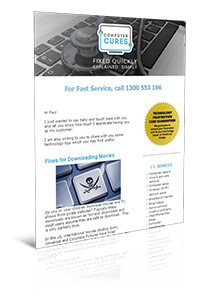
Leave A Comment